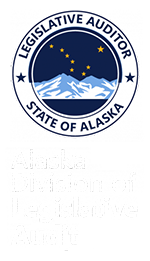| SUMMARY OF: | A Special Report on the Department of Administration, Division of Finance’s implementation of the state travel office, state travel procurement, and agencies’ use of the Alaska Airlines EasyBiz program. |
Purpose of the Report
In accordance with Title 24 of the Alaska Statutes and a special request by the Legislative Budget and Audit Committee, we have conducted an audit to analyze and evaluate the changes being made to processes for procuring state travel, as well as review of the Alaska Airlines EasyBiz mileage program used by state departments.
Report Conclusions
The benefits from the State Travel Office (STO) should outweigh the costs after its full implementation. During the implementation period the costs are at least as much as the benefits achieved by the State to date; the extent to which is extremely difficult to ascertain at this time. The process of implementation is ongoing, with only a few departments currently using STO. Furthermore, information prior to the establishment of STO was limited to expenditures and no data exists related to travel patterns.
According to Alaska Airlines, the State has been purchasing travel at the highest cost (full coach) airfare 44% of the time. And again, according to Alaska Airlines, the industry standard for businesses for full coach fare is about 10%. A key component of travel savings is in the use of negotiated government rates, but those rates are not available until the department begins using STO to purchase air travel. Alaska Airlines required the State to have a central point of contact for travel requests before serious negotiations could proceed. Once the decision was made to create a central travel office, extensive planning and input from “customer” agencies occurred. Approximately two years elapsed from the initial concept to implementation; most of that time was spent in planning activities.
The benefits of travel purchase information, identifying savings and other travel activity, is essential for managers. This kind of information can only be generated by a travel agency. The STO can provide this information which the departments cannot, otherwise, economically prepare for themselves. Until report development is completed and all state agencies are using the STO, the State is not capable of realizing the full benefits of relevant and reliable information available through the STO.
The STO has some measures in place to ensure its objectives are met; however, improvements and additional measures are still needed. DOF has identified the primary objectives for the State’s centralized travel office as obtaining least cost, better travel purchasing enforcement, and the ability to provide relevant and reliable information about state travel.
Agencies have large inventories of accrued mileage accounts with minimal purchases of mileage ticket activity during our review period. As of December 31, 2005 the State had approximately 18,800,000 miles within EasyBiz accounts. The State of Alaska needs a policy to guide departments’ use of business miles.
Overall, we conclude that the concept and framework of a central travel office is viable for the State and can provide costs savings for travel purchases. However, improvements in the STO’s processes, procedures, and reporting will assist the State in achieving the greatest benefits from centralization.
Findings and Recommendations
- The director of Finance, working with the STO manager, should summarize and report travel activities to commissioners on a monthly basis.
- Lost Savings should be reported.
- Additional travel activity should be reported to management
- The STO manager should work with department travel coordinators to enhance travel request processes.
- The directors of administrative services should work with travel coordinators to improve travel desk operations.
- Additional training for travel desk staff is needed.
- Improve efficiencies by reducing the number of travel desks.
- Cross train departmental travel coordinator prior to implementation.
- The director of Finance should develop guidance for the use of mileage and seek revision of travel statutes.
- The STO manager should refine the complaint process used by state employees.

